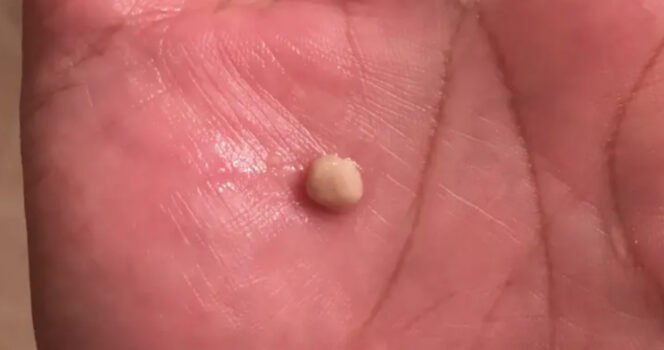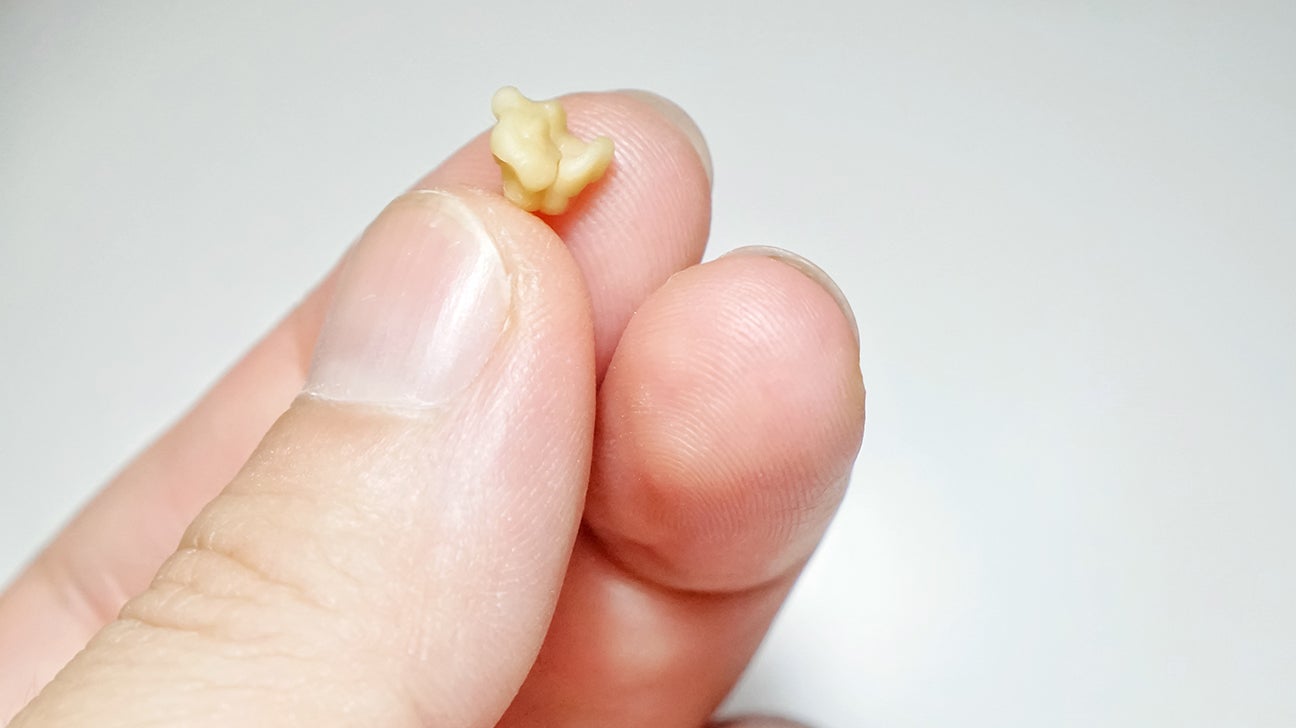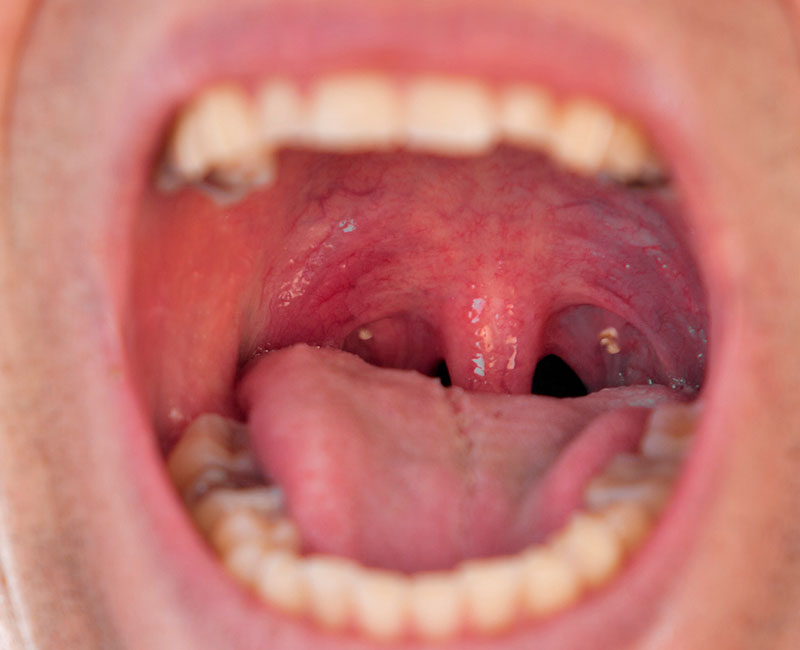Tonsil stones, also known as tonsilloliths, are small, hard formations that can develop on or within the tonsils. While they may look unusual and sometimes cause discomfort, they are typically harmless and treatable with simple at-home remedies or, in some cases, medical intervention.
In this guide, we’ll break down everything you need to know about tonsil stones, including how they form, what symptoms they cause, and the best ways to manage or prevent them—based on verified medical information from trusted sources such as the Mayo Clinic, Cleveland Clinic, and National Institutes of Health (NIH).
What Are Tonsil Stones?
Tonsil stones are calcified debris that collect in the crevices (crypts) of the tonsils—two small glands located at the back of the throat. They appear as small white or yellowish lumps and are made up of materials like:
- Dead cells
- Mucus
- Saliva
- Food particles
- Bacteria and fungi
Over time, this debris can harden, resulting in a stone-like mass.
Source: Mayo Clinic – Tonsillitis and Tonsilloliths Overview
Who Gets Tonsil Stones?
Tonsil stones are common and benign, affecting both adults and children. They are more likely to occur in individuals who:
- Have chronic tonsillitis
- Experience frequent sinus infections
- Have large tonsillar crypts (deep grooves in the tonsils)
- Practice inadequate oral hygiene
According to Cleveland Clinic, millions of people develop tonsil stones each year, though many may not even notice them unless symptoms appear.
Source: Cleveland Clinic – Tonsil Stones Guide
Symptoms of Tonsil Stones
In many cases, tonsil stones are asymptomatic, meaning they don’t cause any noticeable issues. However, when symptoms do arise, they may include:
- Bad breath (halitosis) – Often the most common symptom due to bacterial buildup.
- Sore throat – A feeling of irritation or pressure near the tonsils.
- Difficulty swallowing – If a stone is large enough.
- White or yellow visible spots on the tonsils.
- Ear pain – Due to shared nerve pathways, even though the issue is in the throat.
- Persistent cough – Caused by throat irritation.
- Tonsil inflammation or redness.
Source: American Academy of Otolaryngology – Tonsil Disorders
What Causes Tonsil Stones?
The primary cause of tonsil stones is the accumulation of debris in the tonsillar crypts. This includes:
- Trapped food particles
- Dead cells from the lining of the mouth and throat
- Mucus and saliva
- Oral bacteria and fungi
When this material collects and is not naturally cleared, it can calcify over time, forming small, stone-like deposits. In some individuals, recurring stones may be linked to enlarged or irregularly shaped tonsils that trap debris more easily.
Source: National Institutes of Health – Oral Health Studies
How to Safely Remove Tonsil Stones at Home
For minor cases, tonsil stones can often be safely removed at home using gentle, non-invasive methods. Always wash your hands and ensure cleanliness before attempting removal.
Recommended At-Home Treatments:
- Gargling with warm salt water – Helps dislodge stones and soothe inflammation.
- Using a cotton swab – Gently pressing near the tonsil to remove stones. Do not use sharp objects.
- Oral irrigators – Devices that gently rinse the back of the throat with water.
- Coughing – Occasionally, a strong cough may naturally dislodge a stone.
- Good oral hygiene – Brushing the tongue, flossing, and using mouthwash can prevent recurrence.
Avoid aggressive probing, using tweezers, or inserting sharp tools, as these can cause injury or infection.
Source: Cleveland Clinic – Home Remedies for Tonsil Stones
When to See a Doctor
If tonsil stones:
- Become large or recurrent
- Cause significant discomfort
- Lead to difficulty swallowing
- Are accompanied by fever or persistent tonsillitis
…it is advisable to consult an ear, nose, and throat (ENT) specialist.
In some cases, medical interventions such as laser cryptolysis, curettage, or even a tonsillectomy (surgical removal of the tonsils) may be considered—especially if stones interfere with daily life or frequently recur.
Source: American Academy of Otolaryngology – Surgical Treatments for Tonsil Conditions
Can Tonsil Stones Be Prevented?
While not all cases of tonsil stones are preventable, adopting consistent oral hygiene practices can significantly reduce their occurrence. Here are some preventive tips:
- Brush and floss daily to reduce bacteria and food debris.
- Use an antibacterial mouthwash to minimize microbial buildup.
- Stay hydrated to promote saliva flow, which naturally cleanses the mouth.
- Avoid smoking, which contributes to dry mouth and oral bacteria.
- Gargle regularly, especially after meals.
For individuals with chronic tonsillitis, discussing the option of a tonsillectomy with a healthcare provider may also be beneficial.
Source: Mayo Clinic – Tonsil Health and Hygiene Tips
Are Tonsil Stones a Sign of Something Serious?
Tonsil stones are typically not dangerous. However, they may sometimes mimic the symptoms of other conditions, such as:
- Tonsillitis
- Throat infections
- Oral abscesses
If symptoms persist or worsen, a professional medical evaluation can rule out more serious concerns and ensure proper treatment.
Source: National Health Service (NHS) – Throat and Tonsil Health
Final Thoughts: Tonsil Stones Are Common and Manageable
Although they may look unusual or feel uncomfortable, tonsil stones are a common and treatable condition. With appropriate home care, good oral hygiene, and medical support when needed, most individuals can manage or prevent them effectively.
Understanding what causes tonsil stones and how to safely deal with them can help you maintain better oral and throat health—without the need for unnecessary worry.
If you’re experiencing symptoms or are unsure whether you have tonsil stones, schedule an appointment with a dentist or an ENT specialist for proper diagnosis and peace of mind.
Verified Sources:
- Mayo Clinic – Tonsillitis & Tonsil Stones
- Cleveland Clinic – Tonsil Stones
- American Academy of Otolaryngology
- National Institutes of Health
- NHS – Throat Conditions




